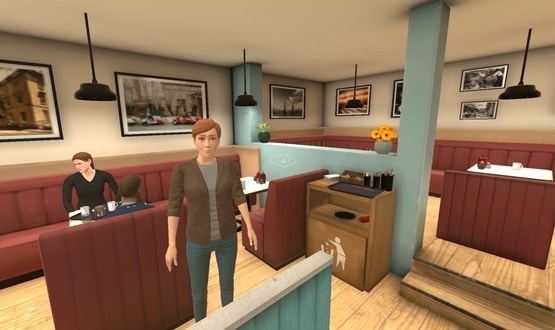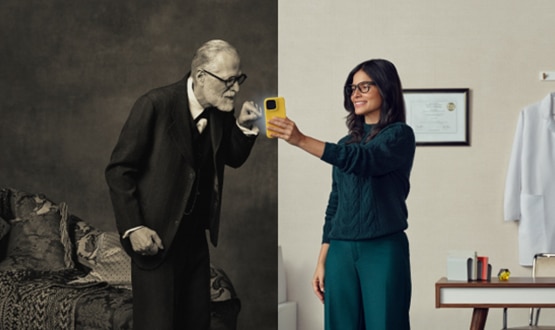NHS offers new virtual reality treatment for patients with social anxiety

A new virtual reality (VR) therapy service designed to help patients overcome anxious social avoidance is now available on the NHS.
Oxford VR’s social engagement program applies cognitive behavioural therapy (CBT) techniques within an immersive virtual reality setting that tasks patients with completing various objectives.
During each half-hour session, the user puts on a VR headset and are guided by a virtual coach through a series of tasks that reflect everyday triggers of anxious social avoidance – such as being in the street, on a bus or inside a shop.
Patients are encouraged to gradually face problematic situations to overcome their anxiety, build confidence and feel more in control. The program does not require a qualified clinician and can be delivered by a trained member of staff, meaning therapists can be reserved for more urgent cases.
Oxford VR’s social engagement program is available on the NHS via Improving Access to Psychological Therapies (IAPT) and other mental healthcare providers.
June Dent, director of clinical partnerships at Oxford VR, said: “Our vision is to turn the tide on life-interrupting mental illnesses pushing the boundaries of clinical excellence and new technology to transform lives.
“The immersive nature of VR provides a powerful new way to engage users and helps them to regain confidence, feel safe and overcome trigger situations. This innovative program has been created with the voices and expertise of people affected by anxious social avoidance and applies proven evidence-based psychological techniques.”
Anxious social avoidance is a highly debilitating feature of mental illness, causing individuals to experience extreme distress in public situations such as being outside or using public transport.
This can progress individuals putting themselves into social isolation, which can exacerbate both mental and physical health issues.
Anxious social avoidance is common in individuals with addiction issues. In severe and complex mental health conditions such as schizophrenia, anxious social avoidance leading to isolation is frequently seen.
Virtual reality offers a safe and controlled environment where they can try out new things without any risk of harm. By completing tasks, users learn that they can cope in these situations and behavioural changes can be transferred to the real world.
For this reason, VR technology can be used to help people overcome a wide range of phobias. Last month, for example, Norfolk and Suffolk NHS Foundation Trust introduced virtual reality treatment to its Wellbeing service as part of the treatments it offers patients suffering from phobias ranging from needles, flying and spiders to agoraphobia, hights and claustrophobia.





1 Comments
will be interesting to see how spend on digital and other technology changes after covid.
we have massively neglected the acute side of care and the headless chickens are coming home to roost. Except that there are no ED trolleys or ICU beds for them roost in.
Comments are closed.